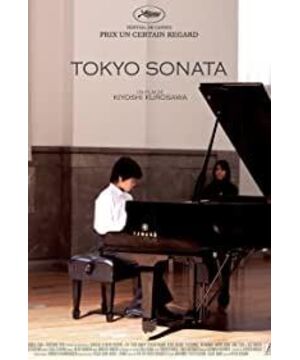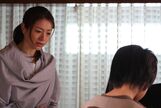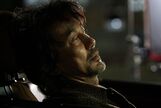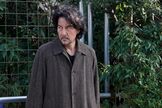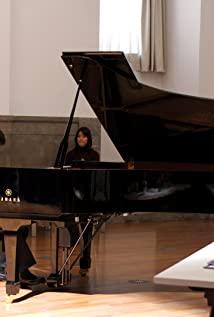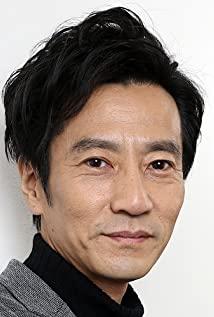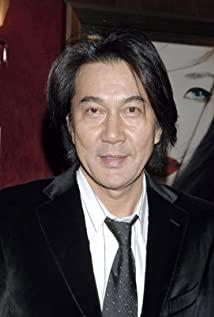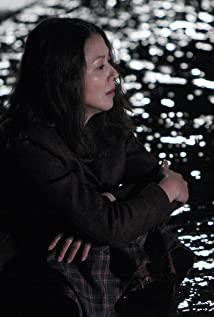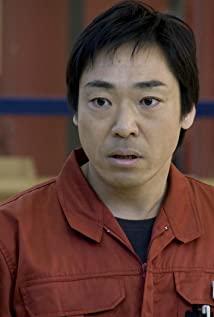Bye, Yasujiro Ozu?
At the beginning, the author already mentioned that there is a looming red line between the word "Tokyo" and Yasujiro Ozu. Therefore, whenever the word "Tokyo" appears in the title of a new film, everyone will unconsciously compare him with Ozu's work, even if it is Kurosawa Kiyoshi who has a completely different style. Anyone who knows Kurosawa Kiyoshi knows that the style of his films is slightly "horror movie" (of course, there are many in this film). However, in this film, as a fan of Yasujiro Ozu, I found many "Ozu elements". Could this be Kurosawa's tribute to Yasujiro Ozu? First of all, regarding the sudden unemployment of the father, it is easy to remind people of Ozu's famous silent film "Tokyo Chorus". Tokyo in both films presents a feeling of economic depression; In Sonata, his wife discovered his ugliness; in addition, the "little thief" played by Hiroji Yakusho felt very close to the robber in "The Little Monk". What I care about most is that the second son fell down the stairs after being beaten by his arrogant and unreasonable father. Of course, watching a movie is a matter of opinion. When talking with Europa, he also put forward a completely different opinion. Probably only Kurosawa Kiyoshi himself knew what medicine was sold in his gourd.
Alien invasion? "Enterprise spirit" exhausted?
"Enterprising spirit" has always been the glory of Japan's Yamato nation. After World War II, Japan has relied on this strength to create many large enterprise groups and provide many contributions to the development of science and technology in the world; at the same time, the domestic economy has also continued to development, has been maintained at the forefront of the world. But that "bubble" seems to have swallowed up the spiritual power of the Yamato nation little by little. Hashiguchi Ryopu's "Things Around" seems to want to bring the people out of this sad journey, but Kurosawa stood up to stop him. At the beginning of the film, a Chinese laborer who is not fluent in Japanese appears. Last year, former Prime Minister Yasuo Fukuda also pointed out the need to increase the number of foreign students studying in Japan. As a part of studying in Japan, there are so many "compatriots" living around them. It is true that there are also outstanding elites, but in general terms, everyone Their working abilities are similar. In terms of the extremely strong xenophobic personality of the Japanese nation, it seems that it is against common sense to give up the long-term work manager of the company and use inexperienced foreign new employees instead? I can only say that this is the decline of the Japanese themselves. From the role of the father played by Teruyuki Kagawa, it is not difficult to find that the president of the company did not give him a chance, but he did not have the ability to continue his foothold in this company. Moreover, even the authoritative family status has been gradually lost. After "Tokyo Story", the traditional Japanese family culture has gradually disintegrated, and the relationship between family members has gradually become estranged, but the father's position at home is still unshakable. But the father in the "Tokyo Sonata" has also been lost: the eldest son does not go home every night, completely ignoring his father's words; the second son resists from time to time. . . All this makes the father look so small in this family. Maybe the impact of the economic crisis is very serious, but if the strength is there, it should not fall to the point of lying in the pile of leaves by the roadside.
A good wife and mother in "Illusive World"?
Japanese women in traditional Japan have always been dignified and elegant, gentle and virtuous, starting from Yasujiro Ozu to Yoji Yamada, then Yasuhira Oguri, Jun Ichikawa, etc. Even in the movies of Hirokazu Koreeda, we can I vaguely feel this. But in the character of the mother in "Tokyo Sonata", we don't see that. Perhaps Kurosawa believes that the thinking of women in today's society has already changed. In the past, as a wife, as long as she took good care of the daily life at home, silently supported her husband, and carefully trained her children, this was the greatest satisfaction in life for them. But now it is different. With the continuous progress of material civilization and the continuous development of scientific creation, people's views on life are also different. People in small cities may feel distressed and helpless because they cannot keep up with the trend of the times. It's like the poor family in Yamada Yoji's "Family", but some people are completely the opposite. The superior economic conditions and the living environment of the big city make him lose the direction of life and don't know how to proceed. The mother in this film can be like a mother in the traditional Japanese sense, taking care of the family's daily life and fulfilling the wish of her youngest son to learn the piano. But from her eyes, I always feel that there is a bit of "discordant" element. I think Koizumi Kyoko handled it very well, and that "nothingness" was completely expressed by her. And the "unreal element" is also one of the common elements in Kurosawa Kiyoshi's films. Koizumi Tokoko's eyes are sluggish from time to time, or he is lying on the sofa inexplicably raising his hands, which puts a mysterious veil on this mother who seems to be a good wife and a good mother. What attracts the author's attention is the matter of the eldest son joining the army. , In the case of stable economic conditions (although the father is unemployed), which parent will let their children go to the battlefield, and what is even more surprising is that the person who agrees is actually the mother. You must know that in the society of eastern civilization, the mother The relationship with the eldest son is by no means comparable to ordinary people, and before sending the son to the battlefield, in the eyes of the mother looking at the child, I only saw confusion and emptiness, and the things about the mother seemed to be missing at that moment. .
outsider? Insider?
In the previous paragraph, it was mentioned that the mother and the eldest son in the eastern society are different, and the eldest son in this film is as mysterious as the mother, and it can even be said to be even worse. The well-known film critic Miyatai Shinji mentioned after watching the film: The eldest son is more like an "outsider". He has been wandering around the Sasaki family, but he doesn't seem to feel the family atmosphere. It is true that the film is based on the contradiction caused by "the second son learns the piano". The eldest son has always given people a feeling of dispensation. . But this seemingly "outsider" eldest son "inadvertently" played a crucial role in the film. We can divide the film into these parts, the first is the father's slump after losing his job, the second is the strong impact of the suicide of the black beard family on the father, the next is the sudden attack of "the thief of the prison", and the last is the "Moonlight Sonata". Playing, Restoration of the Family. To my surprise, the transition between each part and the next has a relationship with the eldest son in one way or another. First of all, after the eldest son's heartfelt sentence "you and dad divorce" when he parted with his mother, his father immediately changed significantly due to Kurobeard's suicide. The increasingly confused mother, after having a dream that "the eldest son is suspected of being killed in battle", was "inexplicably" abducted by a thief, and it was this incident that brought her from fantasy back to reality. The letter from the last eldest son brought the family back to normal. In this series of turning points, Kurosawa was able to link a character well through several words and deeds, and this character is the "eldest son" who symbolizes the future of the family and society, which shows how well-intentioned he is Ah, in this respect he has indeed reached the level of a world-class director.
Reborn after death, listen to "Tokyo Sonata"
About the "Moonlight Sonata" played at the end of the film, I believe everyone must be familiar with it. As the ancestor of Impressionism, Debussy, in this moonlight, showed his characteristics of "painting in music, music in painting" vividly. From hazy to unrestrained, from unrestrained to calm. The whole process matches the narrative of "Tokyo Sonata", and Kurosawa Kiyoshi played it at the end. In addition to embodying the meaning of "Sonata", it is more to dedicate this piano to the Sasaki family. My father, who was lying in a pile of weeds, should have been killed by a car; my mother, who was kidnapped by a thief, also suffered from misfortune; and my second son who slipped down the stairs always gave me a sense of death. The eldest son of the fight. That is to say, the Sasaki family, which had collapsed, was miraculously "reborn after death". What did Kurosawa Kiyoshi want to convey to the audience? hope? Or fantasy? We don't know, but in that church-like room, full of harmonious notes, we saw the happy moment of the Sasaki family reborn from the catastrophe, so I'd rather be sentimental and believe that it was Kurosawa Kiyoshi Brings hope to us, because that "Moonlight Sonata" is flawless.
The successful "interpretation" of "Tokyo Sonata" also allowed the world to see Kiyoshi Kurosawa's directing skills. Although there are still some deficiencies in the film, for Kiyotaka Kurosawa, who was transformed for the first time, it was quite a success. . In 2008, a year of great Japanese film scenery, "Tokyo Sonata" could win the "One Kind of Unit" in Cannes, the best film in the Asian Film Festival, and the fourth award in Xunbao, which is undoubtedly a kind of award for Kurosawa Kiyoshi. affim. At the same time, it also lets the world know that "Kurozawa" not only belongs to Akira Kurosawa, but Kiyoshi Kurosawa will definitely leave its mark on the history of world cinema.
View more about Tokyo Sonata reviews


